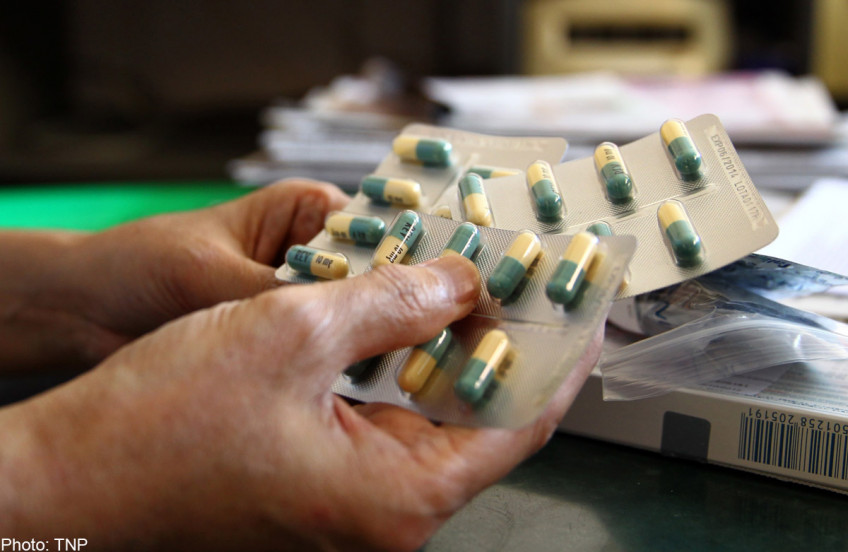Avoid mixing TCM with cancer drugs

SINGAPORE - Women diagnosed with breast cancer often sought to ease their suffering with traditional Chinese medicine (TCM) - but most had kept their doctors in the dark about it.
This was what researchers at Tan Tock Seng Hospital found in a study of 300 of its breast cancer patients.
Of the group, 104 women admitted to using TCM, mostly after being introduced to it by family members and friends. But only three in 10 informed their doctors about this.
Those who did not said they were afraid of being scolded, felt that the doctor had no understanding of Chinese medicine or simply because they were not asked about it.
But keeping mum about seeking complementary treatment can be risky, said Dr Juliana Chen, the director of the hospital's breast clinic who was involved in the study.
The effects of Western and Chinese medicine may contradict each other, so taking both at the same time can, for example, dull the effects of the cancer treatment. "This is the concern that we have," said Dr Chen. "When you are on cancer treatment, don't mix."
Principal acupuncturist and TCM physician Dora Ng said certain herbal medications, for instance, have blood-thinning properties. This could increase the risk of excessive bleeding during an operation.
She would advise patients to stop or avoid taking Chinese herbs one week before surgery.
But they can help when consumed well ahead or after an operation, said Ms Ng, who works at Tan Tock Seng Hospital's division of complementary integrative medicine.
At times, TCM dietary herbal therapy is used weeks before surgery to boost the patient's immunity and qi (vital energy). Meanwhile, drinking herbal tonic soups after surgery can promote the healing of wounds and boost the patient's energy.
TCM is also useful in taming the side effects of chemotherapy, such as nausea, fatigue and hair loss.
Dr Chen said doctors trained in Western medicine are not necessarily against Chinese medicine - as long as patients complete their cancer treatment. They are welcome to seek
TCM help before or after treatments such as chemotherapy, she added.
"As long as the patient carries on regular treatment, we are happy."
Worryingly, some people would choose to entirely abandon Western treatment and seek TCM expertise or other alternative methods instead.
In the study, there were three patients who did that. Dr Chen said she encounters at least one case every two weeks or so.
"If the patient runs off, the doctor won't get to see him, much less discuss his use of TCM," she said.
Ms Seah Ai Wei, a TCM physician at Thomson Chinese Medicine, said there are patients who, after limited success with conventional therapy, want to explore alternatives, even if there is a lack of proven benefit.
But Ms Seah agreed that TCM should not replace regular treatment.
"For now, the greatest benefit of TCM seems to be for post-cancer recuperation, to restore balance for the entire body to function again," she said. This is because Chinese medicine focuses not only on treating the affected organ, but also considers its relationship with other organs.
The study, published in February in local medical journal Annals Academy Of Medicine, also found that none of the patients who used TCM suffered any ill effects. About 75 per cent even perceived a benefit from it.
This further strengthens the widely held belief that TCM is safe, the researchers noted.
"Rather than ignoring TCM use, clinicians should perhaps not shy away from asking their patients directly about concomitant or intended TCM use," they wrote. This way, patients can be directed to established TCM physicians as well.
Said Ms Ng: "The truth is, TCM alone cannot treat cancer. But it has a role in complementing conventional medicine."

Get a copy of Mind Your Body, The Straits Times or go to straitstimes.com for more stories.